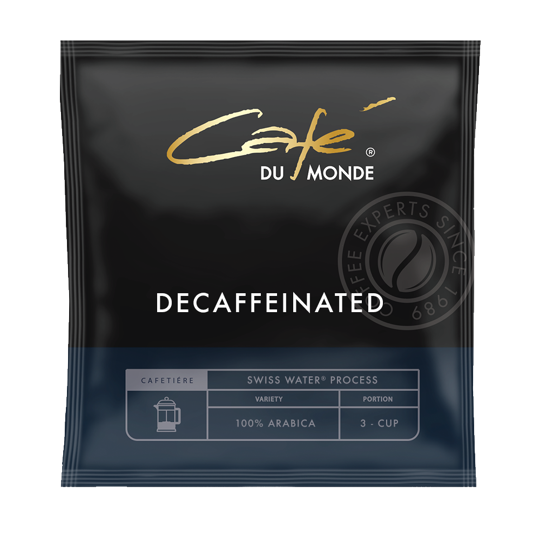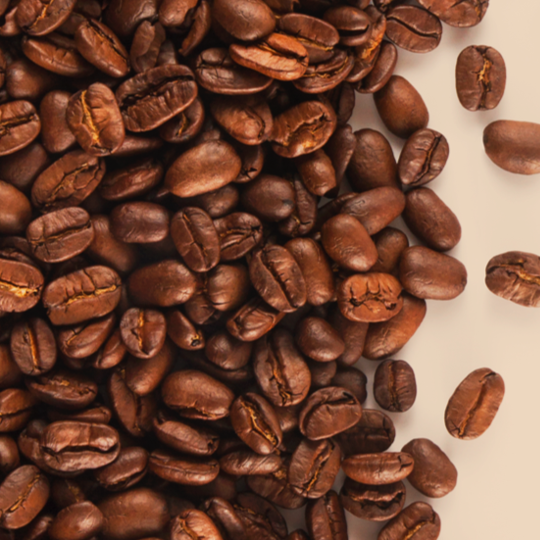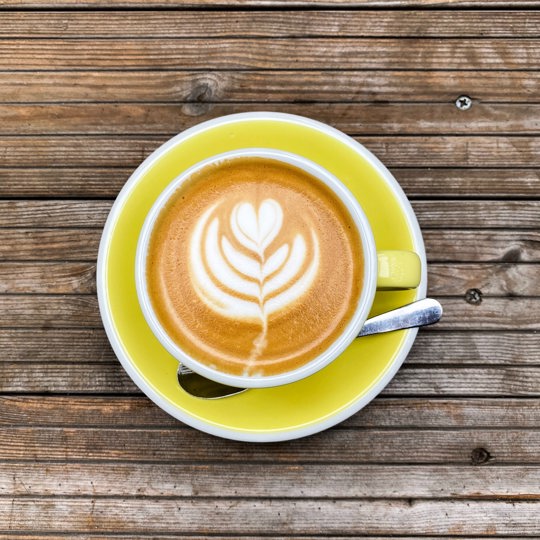
Decaffeinated
As the Swiss Water Decaffeinated Coffee Company in Canada purchases coffee from all over the world, the decaffeinated coffee available from them changes according to the originals they have used.
£16.76
View
Find out about how coffee is decaffeinated?
The world of coffee can sometimes seem complex if you’re interested in anything more than a standard ‘cuppa’. As experts in this sector for the last 30 years, here at Cafe Du Monde we’re best placed and more than happy to run you and your business through the ins and outs of the industry - and that includes specific topics such as decaffeinated coffee.
A cup of decaffeinated coffee contains about 2 mg of caffeine, compared to a regular cup of coffee, which has about 95 mg of caffeine. So, to start, let’s look at caffeine itself. You’ll find it in other drinks and foods, but it’s most commonly linked to coffee. Decaffeination is a process which removes about 97% or more of the caffeine in coffee beans. Find out more about how much caffeine is in decaf coffee here.
If you’re wondering how they make decaf (decaffeinated) coffee, remember that the beans always start out green just like all regular unroasted coffee beans. Water is always used in the process and there are four common methods for making these beans decaf. Although an extremely complex process, the methods behind making decaffeinated coffee have been around for centuries and are still being used today.
The four principle methods can be categorised into solvent-based and non-solvent-based processes. The first two methods include using a mixture of water and solvents either directly or indirectly to the beans; non-solvent processes involve the use of SwissWater or using water and carbon dioxide.
The hard beans are warmed and soaked in liquid to dissolve and remove the caffeine in one of four ways. All four methods are safe, and once the caffeine is removed (well, at least 97% of it), the beans are washed, steamed, and roasted at temperatures that evaporate the liquids used in decaffeination.

Along with a variety of proven health benefits of coffee drinking, for some it can cause racing heartbeat, anxiety, insomnia, diarrhoea, excess sweating and muscle tremors. Some people love the taste of coffee but can’t deal with these effects of caffeine, so decaf is a great option for those who want the taste of drinking coffee without the actual boost of the caffeine itself.
In addition to those who might experience the negative effects above associated with coffee, it is common practice for pregnant and nursing women to avoid caffeine and the impacts it can have on them and the life they are caring for.


As the Swiss Water Decaffeinated Coffee Company in Canada purchases coffee from all over the world, the decaffeinated coffee available from them changes according to the originals they have used.
£16.76
View
Each fully biodegradable bag contains Rainforest Alliance Certified. 100% Fresh Ground Arabica coffee.
£34.60
View
Swiss Water Decaffeinated Coffee Company in Canada purchases coffee from all over the world, meaning the coffee changes according to the originals.
£5.43
View